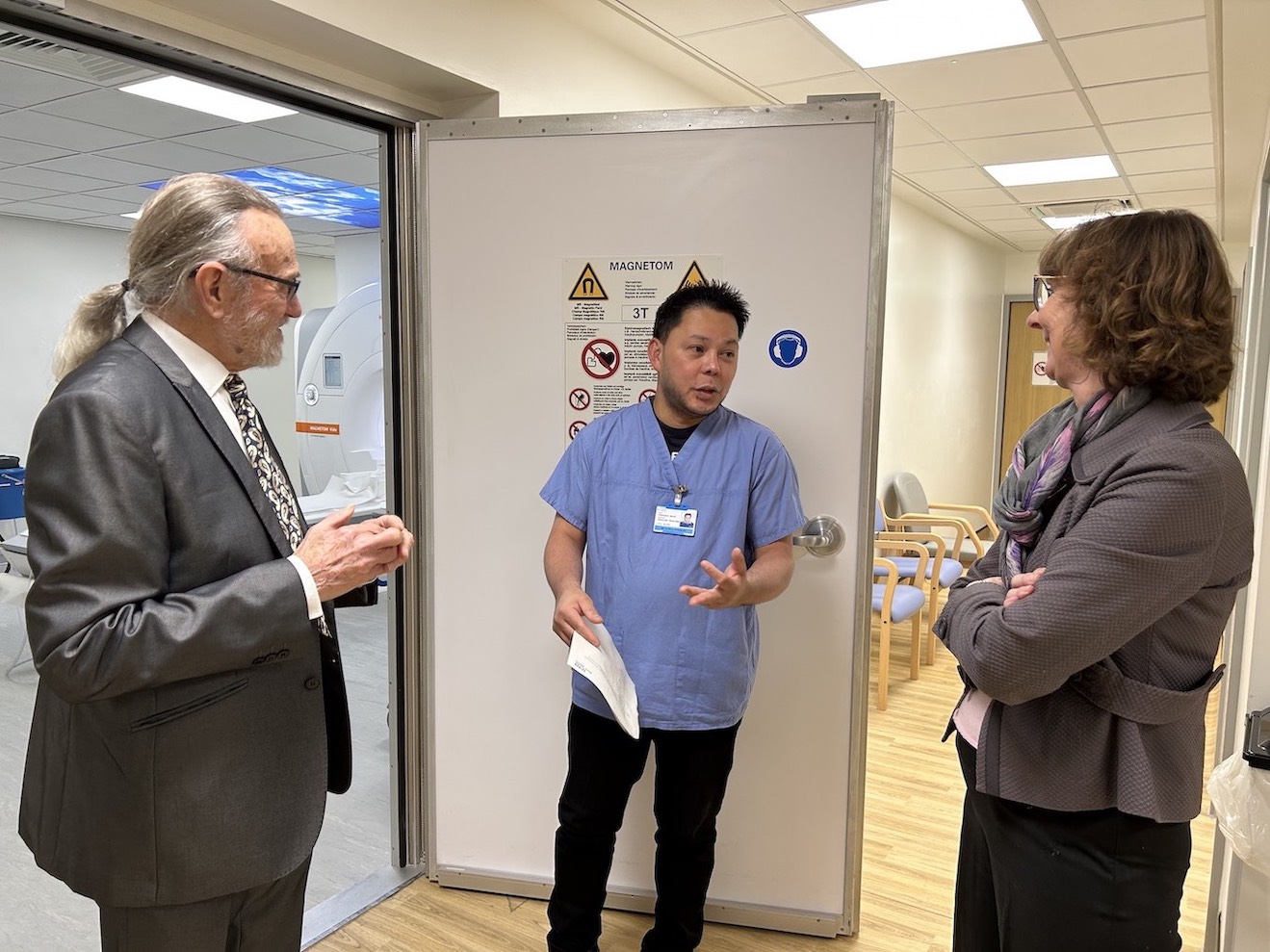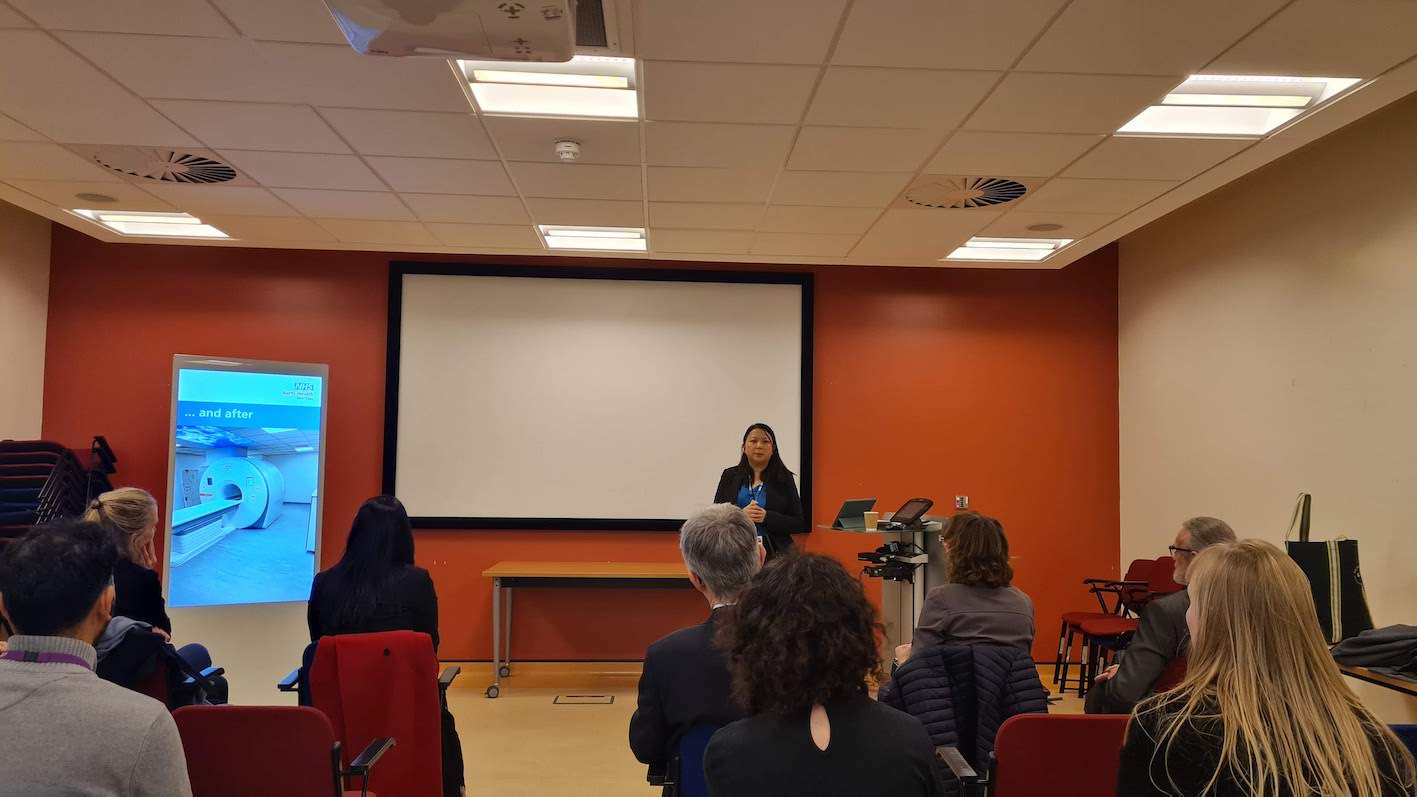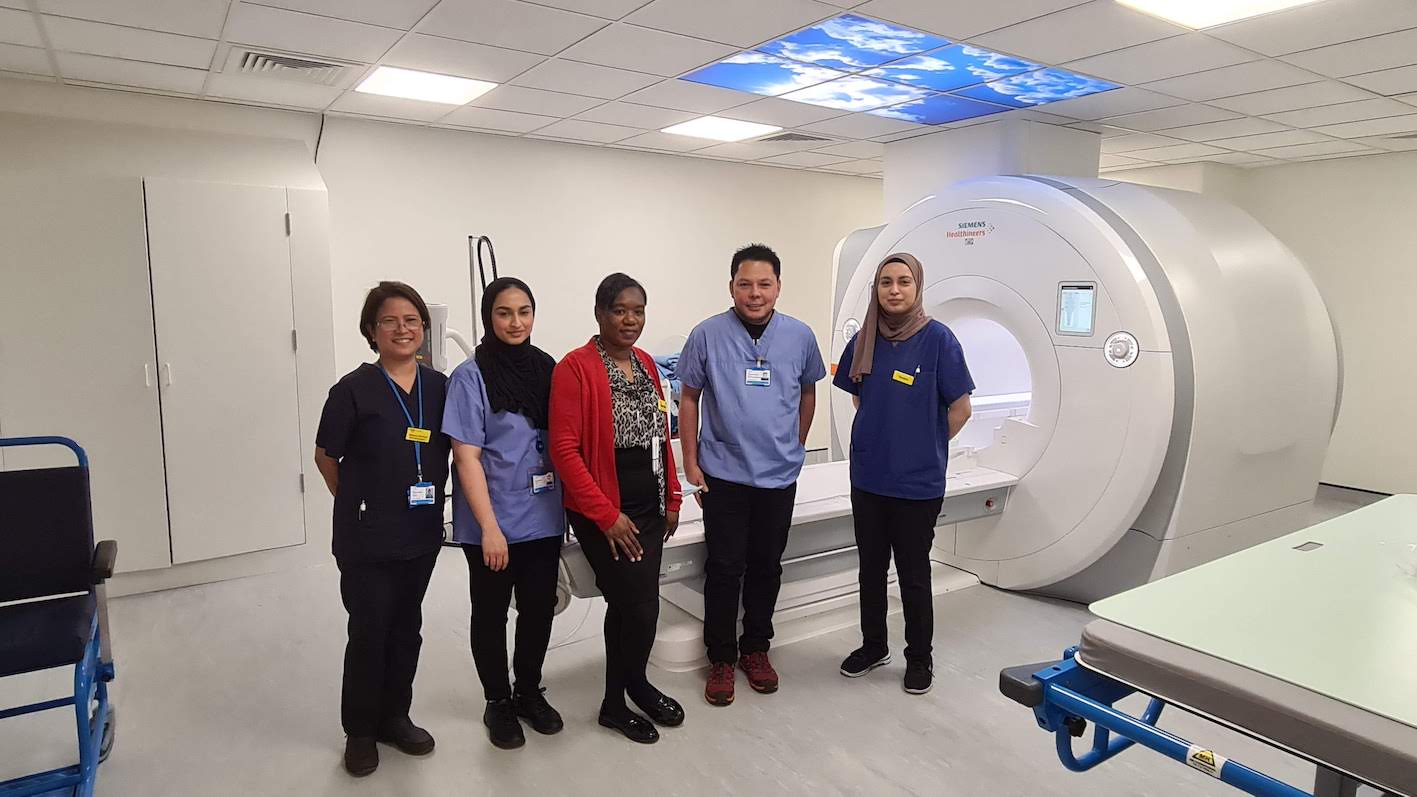New MRI suite provides 4,500 more scans for north east London residents
North East London Cancer Alliance, in partnership with Barts Health and Barts Charity, has formally launched a new MRI scanner at the Mile End Early Diagnosis Centre. This will provide an extra 4,500 scans a year for all residents across north east London, on top of the additional 16,500 additional procedures already provided by the centre.
The formal launch took place on Thursday 2 February, although the unit is already up and running and has scanned over 1,000 patients since it opened in November last year.
The £4.1 million 3Tesla (3T) scanner, using latest MRI technology, is a major boost for patients in north east London as it provides faster and more accurate diagnoses for a range of cancers, including brain, spinal cord, pelvic, breast, liver and musculoskeletal malignancies – supporting efforts to help tackle the diagnosis backlog caused by the Covid-19 pandemic.
The new scanner is quicker and more comfortable, and the facility has been designed with input from patients to make the experience a more pleasant one. Special thanks go to Jane Aylott, David Elliott and Noel Judge from the North East London Cancer Alliance patient group for making this happen.
Jane Aylott has been involved with the Early Diagnosis Centre right from the start and said: ‘The new MRI is bright, light, spacious, calm and welcoming. As someone with a lot of experience of having scans, I know just how important this is.
“The site of the MRI suite is actually within the Mile End Hospital car park and, through clever use of space by removing a few car parking spaces, we have added an extension to the scanning department and created this wonderful facility.”

Increasing MRI capacity is a national priority and diagnostic activity forms part of over 85% of clinical pathways and the NHS spends over £6bn a year to carry out 1.5 billion diagnostic tests.
The Early Diagnosis Centre is a joint initiative from three local NHS trusts – Barts Health, Barking and Dagenham, Havering and Redbridge University Trust and Homerton University Hospitals – and offers best practice in additional endoscopy, ultrasound and phlebotomy capacity. Its co-location with X-ray and CT scanning, together with the new 3T MRI unit, will support one-stop cancer pathways for efficient, holistic patient care. To find out more about it, watch our video here: https://youtu.be/DYPdvVDp2PQ
This new centre is part of the national drive to develop innovative one-stop community diagnostic hubs as outlined in the independent report ‘Diagnostics: Recovery and Renewal’ (Oct 2020). The EDC is due to be developed as a full Community Diagnostic Centre (CDC).

Dr Angela Wong, Chief Medical Officer for the North East London Cancer Alliance and lead consultant on the project, said: “We are delighted to have secured the funding for the 3T MRI scanner which will bring significant health benefits to people in north east London.
“The state-of-the-art 3T scanner has a significant advantage over the equivalent 1.5T unit as it is more efficient, leading to faster scans. The high-quality imaging could also cut the need for unnecessary interventions such as biopsies.”
In 2021, NHSE Community Diagnostic Centres (CDC) programme provided £3.64m to support the purchase and associated capital costs of installing a 1.5T MRI. Barts Charity provided the £500,000 required to enable the upgrade to the 3T model, offering equitable access for all hospital sites in North East London. It is expected this will provide capacity for up to 4,500 more scans per year, on top of the additional 16,500 additional procedures provided by the EDC.
Fiona Miller Smith, Chief Executive, Barts Charity, comments on this investment: “This vital and much needed capital investment is a prime example of how we as a charity, can add real value to the NHS by providing the additional funding needed to improve health outcomes for the people of North East London.”






